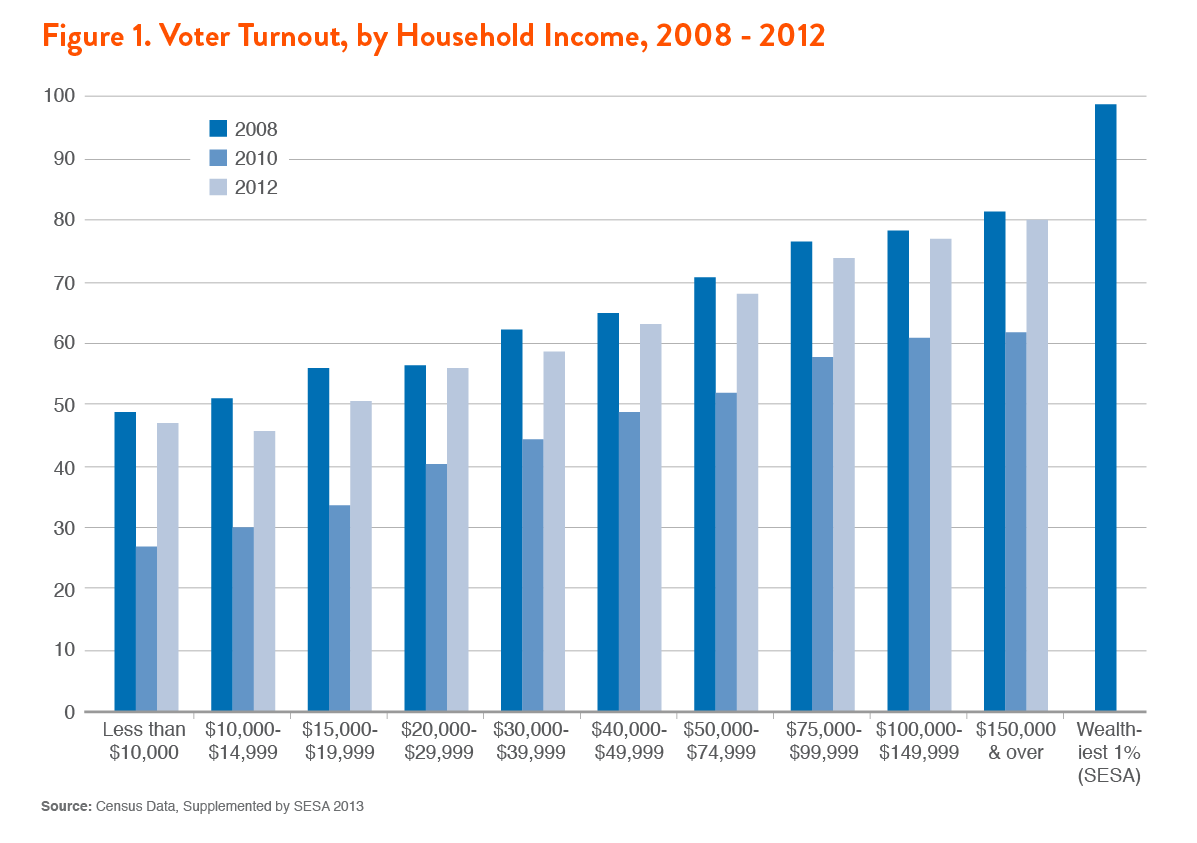If You Don't Vote on Tuesday, You Are Shooting Yourself in the Foot...
By:
The midterm elections are coming up this Tuesday, Nov. 4 and will determine your local and Congressional representation, as well as in many states, important measures such as the minimum wage and medical marijuana legalization. Despite the direct impact this election will have on your state's governance and policies, midterm election voter turnout is almost always abysmally low. In 2010, only 24% of people ages 18 to 29 voted, compared to 51.4% of people ages 30 and up.
So basically, our generation have continued to allow the older generations to determine our governmental fate. This is especially concerning, considering that while many young people struggle to find jobs, households with higher incomes continue to show up to the polls in droves. In 2010, only 26.7% of citizens earning less than $10,000 voted, while 61.6% of those earning $150,000 voted.

If you're sitting there wondering, "So what does it matter, nothing will ever change," I would counter that it matters a hell of a lot. Let's look at some reasons why:
First off, there's the minimum wage. Arkansas, Nebraska, South Dakota and Alaska all have ballot measures that would increase the minimum age. Now, if you don't live in any of those four states, you may be wondering -how does this affect me? Well, if those measures go through, this would put increasing pressure on other states that have yet to raise their minimum wage, as well as a federal minimum wage hike too. And it will be our legislators in Congress which will have the power to either promote, or stand in the way, of a federal minimum wage hike.
Not surprisingly, voter turnout can also have an effect on a state's overall income inequality. A recent study examining class biases in voting in all 50 U.S. states from 1976 to 2006 found that "states with higher levels of class bias in voting have been less likely to enact minimum wage increases. This increases gaps, since higher minimum wages are known to be associated with reductions in income inequality." In addition, the study found that the higher level of class bias there is in a state, the less likely the state government is to respond to public opinion that supports income equality. So, if the trend of older, wealthier people dominating the ballot boxes continues, income inequality will not only continue, but most likely rise.
And the minimum wage isn't the only thing at stake in these elections - so is healthcare. While not directly on the ballot, the controversy surrounding the Affordable Care Act ensures that it will most certainly become an issue in Congress again. As we explored in an earlier article, Obamacare is succeeding in getting more Americans insured and decreasing health care spending, but it continues to be a contentious issue for many. Obamacare helped to make sure that young people were able to be insured under their parents' insurance plan until the age of 26. However, if we continue to remain apathetic to the midterm elections, we will most likely see more attempts to repeal the legislation. A 2012 Pew study found that non-voters were more likely to support the Affordable Care act than voters, with only 31% of non-voters supporting repeal, compared to 49% of voters.
While it is often easy to believe that the "every vote counts" mantra is an antiquated ideal, the truth is it isn't. So take control of your future and get out and vote this Tuesday, Nov. 4. You can pledge to vote now at OurTime.org.
